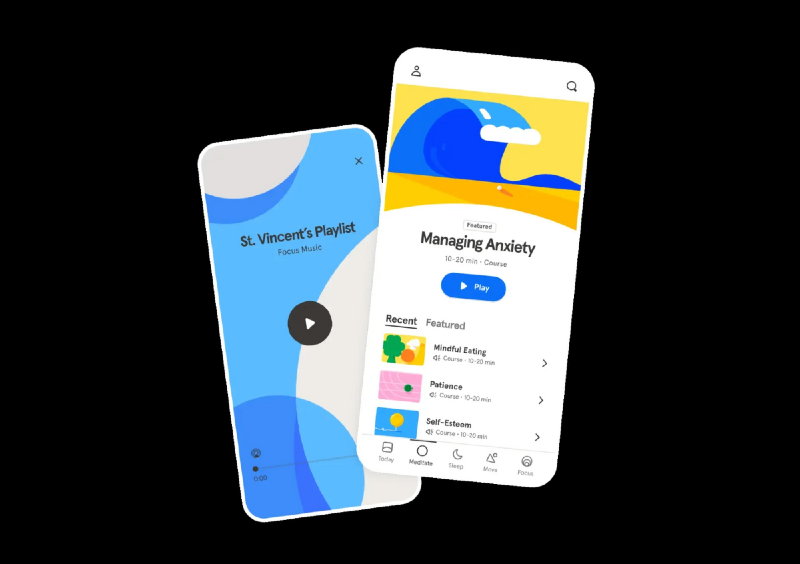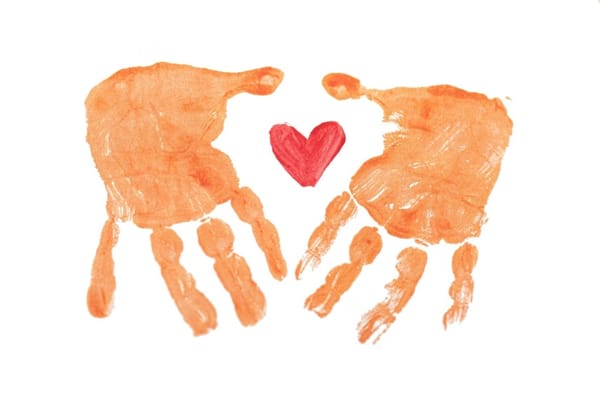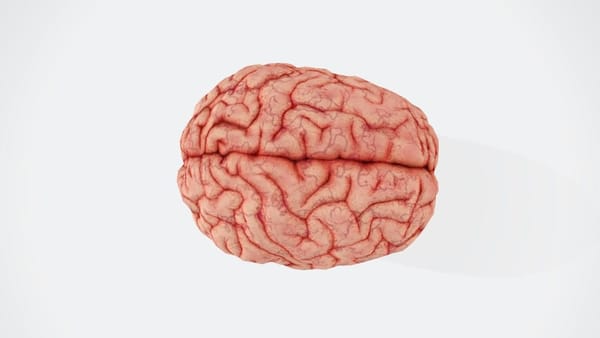In today's fast-paced world, finding moments of peace and tranquility can be challenging, even for celebrities. Pop superstar Ariana Grande has recently opened up about her journey with meditation, describing it as her "deepest act of self-care"[1]. This revelation has sparked interest in the practice of meditation and its potential benefits for mental health and overall well-being. In this article, we'll explore Ariana Grande's experience with meditation and how you can start your own practice using popular apps like Headspace.
Ariana Grande's Meditation Practice
Ariana Grande, known for her powerful vocals and chart-topping hits, has been vocal about her struggles with anxiety and post-traumatic stress disorder (PTSD) in the past. In a recent interview, she shared that meditation has become an integral part of her self-care routine[1]. Grande explained that she practices meditation daily, often for extended periods, finding it to be a transformative experience that helps her manage stress and maintain emotional balance.
The singer's commitment to meditation highlights the growing recognition of mindfulness practices among celebrities and the general public alike. By sharing her experience, Grande is helping to destigmatize mental health discussions and encouraging her fans to explore similar self-care techniques.
The Benefits of Meditation
- Meditation offers a wide range of potential benefits for both mental and physical health. Some of the key advantages include:
- Stress reduction: Regular meditation practice can help lower cortisol levels, the hormone associated with stress[2].
- Improved emotional regulation: Meditation can enhance your ability to manage and process emotions more effectively[2].
- Increased focus and concentration: Mindfulness exercises can boost cognitive function and attention span[2].
- Better sleep quality: Many people report improved sleep patterns after incorporating meditation into their daily routines[2].
- Reduced anxiety and depression symptoms: Studies have shown that meditation can help alleviate symptoms of anxiety and depression[2].
- Enhanced self-awareness: Regular practice can lead to a deeper understanding of oneself and one's thought patterns[2].
- Pain management: Some research suggests that meditation can help in managing chronic pain conditions[2].

Getting Started with Meditation: The Headspace App
For those inspired by Ariana Grande's journey and looking to begin their own meditation practice, apps like Headspace can be an excellent starting point. Headspace is a user-friendly meditation app that offers guided sessions for beginners and experienced practitioners alike[4].
Key Features of Headspace
- Beginner-friendly courses: Headspace offers a 10-day beginner's course to introduce users to the basics of meditation[4].
- Variety of guided meditations: The app provides a wide range of meditation sessions targeting specific areas such as stress, sleep, focus, and anxiety[4].
- Short and long sessions: Users can choose from quick 3-minute meditations to longer 20-minute sessions, making it easy to fit practice into any schedule[4].
- Progress tracking: The app allows users to monitor their meditation streak and overall progress[4].
- Sleep-specific content: Headspace offers bedtime meditations and sleep sounds to help improve sleep quality[4].
How to Use Headspace
- Download the app: Headspace is available for both iOS and Android devices.
- Create an account: Sign up using your email or connect through social media.
- Set your goals: Choose what you want to focus on, such as reducing stress or improving sleep.
- Start with the basics: Begin with the 10-day introductory course to learn fundamental meditation techniques.
- Explore different sessions: Try various guided meditations to find what works best for you.
- Set reminders: Use the app's notification feature to maintain a consistent practice.
- Track your progress: Monitor your meditation streak and the time spent meditating.
The Science Behind Meditation
Numerous scientific studies have explored the effects of meditation on the brain and body. Research has shown that regular meditation practice can lead to structural changes in the brain, particularly in areas associated with emotional regulation, attention, and self-awareness[2].
A study conducted at John Hopkins University found that meditation programs can help ease psychological symptoms of depression, anxiety, and pain related to stress[1]. Another study showed that using the Headspace app for just 10 days resulted in a 7.5% increase in life satisfaction[1].
Moreover, research has demonstrated that meditation can have positive effects on physical health. It has been associated with lower blood pressure, improved immune function, and reduced inflammation[2].
Incorporating Meditation into Your Daily Routine
To experience the full benefits of meditation, consistency is key. Here are some tips for making meditation a regular part of your self-care routine:
- Start small: Begin with short 5-minute sessions and gradually increase the duration as you become more comfortable.
- Choose a consistent time: Try to meditate at the same time each day to establish a habit.
- Create a dedicated space: Designate a quiet, comfortable area in your home for meditation.
- Be patient: Remember that meditation is a skill that improves with practice. Don't get discouraged if your mind wanders at first.
- Experiment with different techniques: Try various forms of meditation, such as mindfulness, loving-kindness, or body scan meditations, to find what resonates with you.
- Use guided meditations: Apps like Headspace can provide structure and guidance, especially for beginners.
- Join a community: Consider participating in group meditation sessions or online communities for support and motivation.
Overcoming Common Meditation Challenges
While meditation can be incredibly beneficial, it's not uncommon to face some challenges when starting out. Here are some common obstacles and how to address them:
- Mind wandering: It's normal for thoughts to arise during meditation. Gently redirect your focus to your breath or chosen point of concentration without judgment.
- Restlessness: If you feel fidgety, try a walking meditation or focus on physical sensations in your body.
- Sleepiness: If you find yourself dozing off, try meditating at a different time of day or in a seated position rather than lying down.
- Lack of time: Remember that even short sessions can be beneficial. Start with just a few minutes a day and gradually increase as you can.
- Perfectionism: There's no "perfect" way to meditate. Let go of expectations and focus on consistency rather than achieving a specific state.
Conclusion
Ariana Grande's embrace of meditation as her deepest act of self-care serves as an inspiration for many looking to improve their mental health and overall well-being. By incorporating meditation into your daily routine, whether through apps like Headspace or other methods, you can potentially experience reduced stress, improved emotional regulation, and enhanced self-awareness.
Remember that meditation is a personal journey, and what works for one person may not work for another. Be patient with yourself as you explore different techniques and find what resonates with you. With consistent practice and an open mind, you may discover, like Ariana Grande, that meditation becomes an invaluable tool in your self-care arsenal.
As you embark on your meditation journey, consider starting with the Headspace app or exploring other resources to guide you. The path to inner peace and self-discovery is unique for everyone, but with dedication and practice, the benefits of meditation can be truly transformative.













Member discussion